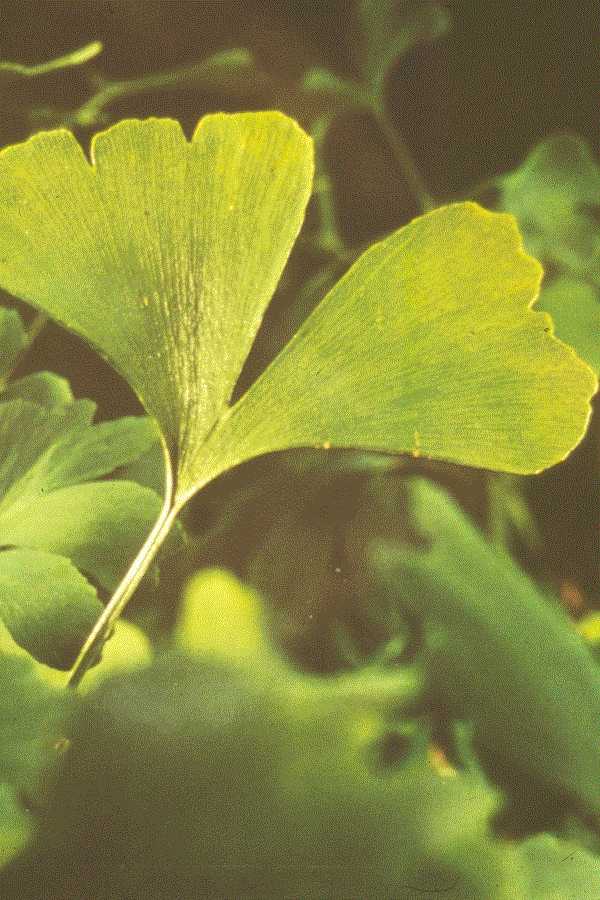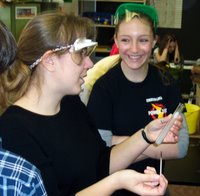our ginkgo tree
The word Ginkgo comes from a misspelling of the Japanese word "ginkyo" or "silver apricot." Other people attribute the word to the older Chinese word meaning "silver fruit."
Not that you'd want to hang around the fruit of the female ginkgo tree. While most plants are hermaphrodites, ginkgos have separate male and female trees. The female trees produce fruit that become a mushy, foul-smelling mess on city sidewalks in the fall. The fruit contains butanoic acid, which makes it smell like rancid butter. For this reason, landscape suppliers will only sell male cultivars, or trees that are male clones of existing trees, to ensure maleness. Don't know if your Ginkgo is male or female? Don't let a few years of non-smelliness convince you - female trees will not fruit for 20 years more. (Ours is a male cultivar.)
Ginkgos are deciduous dioecious gymnosperms (deciduous = they lose leaves yearly, dioecious = male and female are separate, gymnosperm = "naked seed," meaning their seeds are not encased in ripened fruit, although the females do not produce actual cones.)
Kingdom Plantae -- Plants
Subkingdom Tracheobionta -- Vascular plants
Superdivision Spermatophyta -- Seed plants
Division/phylum Ginkgophyta -- Ginkgo
Class Ginkgoopsida
Order Ginkgoales
Family Ginkgoaceae -- Ginkgo family
Genus Ginkgo L.

The only living member of the Order Ginkgoales is the Ginkgo biloba! The word biloba means "two-lobed" and refers to its distinctive leaf shape.
Many people take Ginkgo biloba extracts (widely available at drugstores) for a variety of health issues, however, most often as a memory enhancer (to improve memory). "Some smaller studies for memory enhancement have had promising results, but a trial sponsored by the National Institute on Aging of more than 200 healthy adults over age 60 found that ginkgo taken for 6 weeks did not improve memory," as reported in a 2002 JAMA article.
SOURCES: Ohio State Horticulture Page, National Institute of Heath (NIH) Ginkgo Fact Sheet, The Ginkgo Pages.
Labels: science


0 Comments:
Post a Comment
<< Home